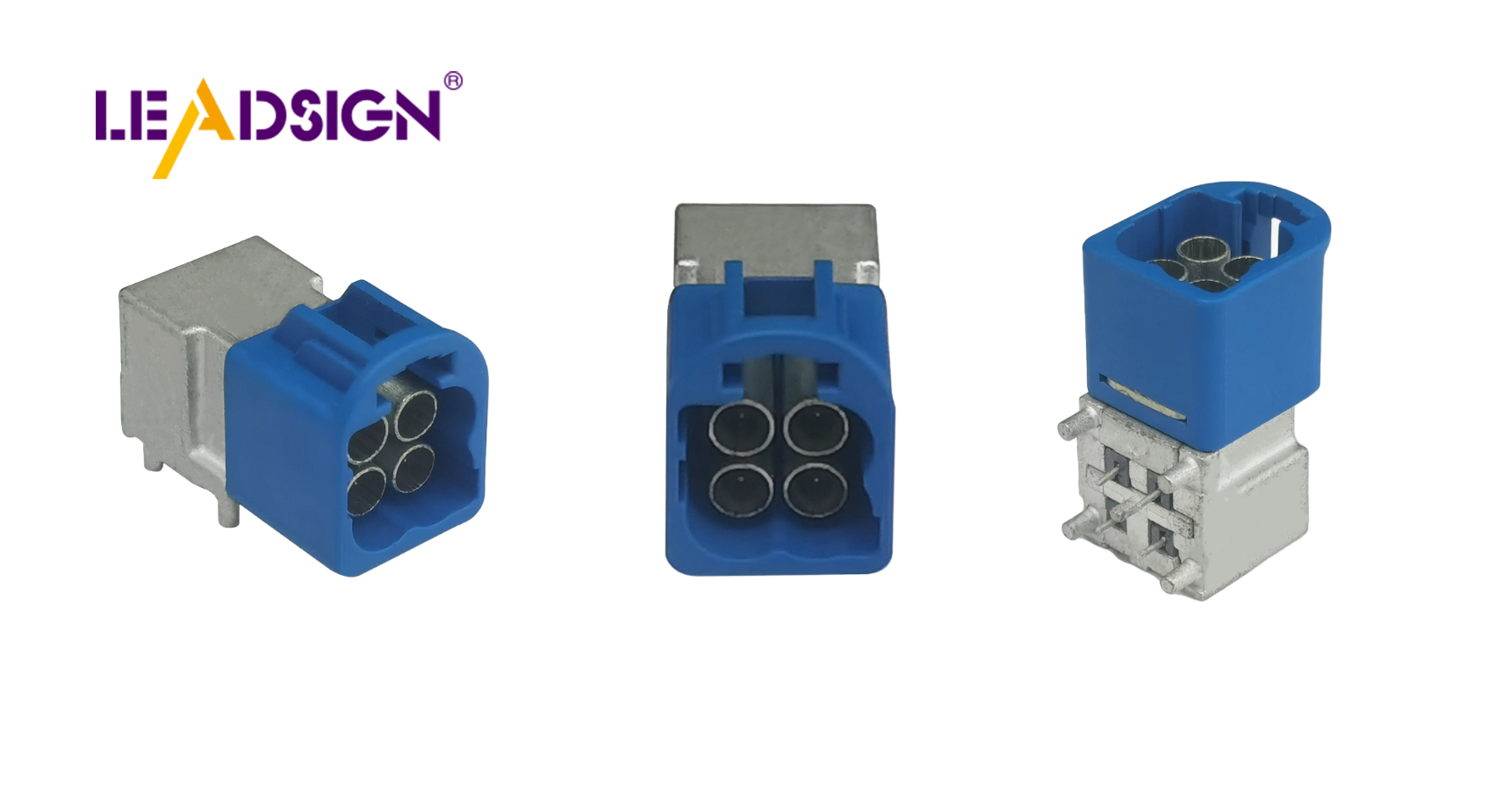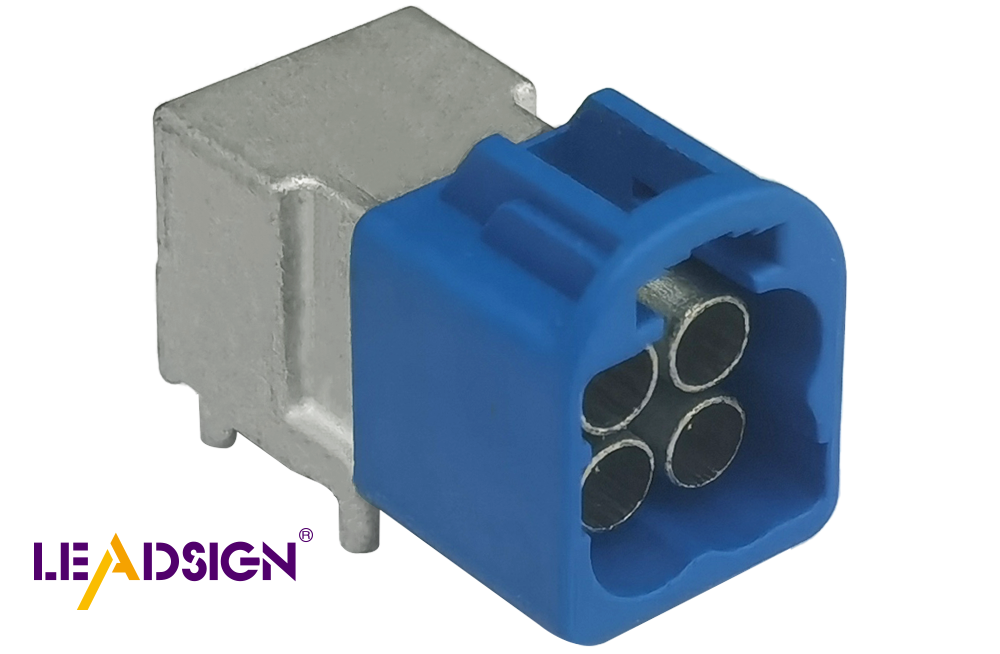Guide to Car Wire Connector Types for Beginners

Car wire connectors are important for your car's electrical system. They help send and change information between different parts. Understanding the various automotive electrical connectors types ensures that you use the right connectors, which keeps your car working well. Knowing how to use them can save you money on repairs. Good connectors last long and handle tough conditions, so they are a smart buy. By learning about them, you get better at taking care of your car and keep it running smoothly for a long time.
Overview of Common Connector Types

Knowing different car electrical connectors is key for your car's system. Each kind has a job and helps power and signals work well. Let's look at some usual connector types you might see.
Blade Connectors
Blade connectors are common in cars. They have a flat shape that makes connecting easy. You often find them in engine control, music systems, and lights. Their shape fits well, making sure power and signals move right. Blade connectors are liked because they are simple and work well in many car places.
Bullet Connectors
Bullet connectors have a round shape for strong wire connections. These are used a lot in cars because they are easy to use and connect tightly. You can quickly attach or remove wires with bullet connectors, good for spots needing changes or fixes often. Their design holds tight, so wires don't come loose from shakes or moves.
Pin Connectors
Pin connectors are important for high-power parts in cars. You see them in things like headlights where they help send power and signals safely. Pin connectors handle big electric loads, keeping your car's main parts working right. They are built tough for hard conditions, lasting long and working well.
By learning about these connector types, you know how your car's electrical system works better. This helps you pick the right connectors when fixing or taking care of your car.
Specialty Connectors
In cars, specialty connectors are very important. They meet special needs in your car's electrical system. Knowing them helps you make smart choices with tricky wiring.
Chassis or Panel Connectors: These connect cables to fixed parts in your car. They keep connections strong and safe, which is key for your car's electric health. You find them where strength matters most.
Splice or Butt Connectors: Use these for joining wires permanently. They give a tough link, perfect for car wiring. These connectors keep parts connected even when things get rough.
PCB Mount Connectors: New cars have printed circuit boards (PCBs). PCB mount connectors attach wires to these boards, helping circuits work well. They join different parts so your car runs smoothly.
Inline or Cable Connectors: These are flexible and used in many ways, like in cars. They let cables fit into slots easily, making them handy where you need to unplug often.
Quick Disconnect Connectors: These let you quickly unplug parts. They're used where parts need changing often, like during repairs. Quick disconnects save time and effort.
Board to Board Connectors: These connect different boards inside cars, like how veins connect in bodies. They help different electronic pieces talk to each other well.
By learning about these specialty connectors, you get better at fixing and caring for your car's electrical system.
Ways to Spot Connectors
Knowing how to spot different car wire connectors is key for keeping your car's electric parts working. Here are some easy ways to help you know these connectors well.
Counting Pins
A simple way to know car wire connectors is by counting pins. Each connector has a set number of pins that connect wires. By counting them, you can tell what the connector does and if it fits your car's system. More pins usually mean the connector does harder jobs, like in music systems or driver aids. Always check that the pin number matches what you need for a good connection.
Checking Shapes
The shape of a connector tells a lot about its type and job. Car wire connectors come in shapes like rectangles, circles, or special designs. These shapes make sure they fit right and stop wrong connections. For example, blade connectors are flat rectangles, while bullet ones are round. Knowing these shapes helps you pick the right one fast, making sure it fits well and works best.
Looking at Colors
Colors also help spot car wire connectors types easily. Makers use certain colors to show what the connector does or what signal it carries. For instance, power supply ones might be red; ground ones could be black. By checking colors, you quickly learn what role the connector plays in your car's electric system. This makes spotting easier and cuts down mistakes when fixing things.
By learning these spotting ways, you're better at handling car wire connectors types. This knowledge helps you choose wisely so your car's electric parts stay strong and work well.
Things to Think About for Your Car and Where Connectors Are
When picking automotive electrical connectors, think about your car and where they go. These things help you choose the right connectors for your car's electric system.
Car Brand and Type
Your car's brand and type affect the connectors you find. Different makers use special electrical connectors that fit their cars. For example, a Ford connector might not be like a Toyota one, even if they do the same job. So, knowing your car helps you pick the right connectors faster.
Maker Rules: Each car maker has special rules for their connectors. Check your car's book or ask an expert to learn these rules better.
Connector Fit: Make sure the connectors fit your car's systems well. Wrong ones can make things work badly or break parts.
Model Differences: Even in one brand, different connectors might use different connectors. Watch out for these differences to avoid mistakes.
Where Connectors Are in Your Car
Where connectors are in your car changes what kind you need. Different spots need connectors with certain features to handle tough conditions.
Engine Area: Connectors here must handle heat and shaking well. Look for strong ones that resist heat.
Inside Connections: Inside, like music systems or controls, need easy-to-reach and bendy connectors.
Outside Connections: For outside parts like lights, pick waterproof ones so they don't rust and last long.
"Knowing a connector’s shape is key for safety in cars."
By knowing what your car needs by its brand, type, and where parts are, you can choose good automotive electrical connectors types wisely. This keeps your car's electric system working great.
Tips for Buying Connectors
When buying car electrical connectors, focus on good quality and smart shopping. This keeps your car's electric system strong and working well.
Quality Checks
Material Strength: Pick connectors made from strong stuff. Good materials last long and don't break easily. Strong connectors handle tough weather, heat, and shakes in cars.
Tight Fit: Make sure connectors fit snugly. Loose ones can cause electric problems or stop working. A tight fit lets power flow smoothly without stopping.
Industry Rules: Choose connectors that follow car industry rules. These rules make sure they work well with car systems. Following these rules means the product is safe and reliable.
Sherco Automotive & Marine Supplies says quality in auto electrical connectors is key. They warn, "Bad connectors can cause poor links, shorts, or fires." Their top-quality ones are made to meet tough car needs.
Shopping Tips
Brand Research: Look up different brands and what people say about them. Some brands are known for good car electrical connectors types. Reading reviews helps you find the best ones.
Price Check: Compare prices to get a good deal but don't skip quality for cost savings. Sometimes buying more saves money if you need many connectors.
Check Fit: Make sure the connectors match your car's brand and type to avoid fitting issues.
Ask Experts: If unsure, talk to car experts for advice on the best connector types for your needs.
By checking quality and using smart shopping tips, you can buy the right automotive electrical connector types confidently, boosting your car's performance while ensuring safety and reliability in its electric system.
Knowing about car electrical connectors is key for your car's upkeep. You can now pick and buy the right ones, keeping your car's electric parts working well. Using this know-how in car projects saves time and cash. As Michael Niu says, connectors are cheap and handy, especially if you follow the guidebook. Bigguns69 suggests Deutsch connectors because they're easy to use and last long. By learning about these connector types, you get better at taking care of your car, making it more dependable and efficient.
See Also
Understanding Fakra Connectors: Types, Uses, and Essentials
In-Depth Look at Fakra Male Connectors
Exploring Ford's Fakra Connector Options

